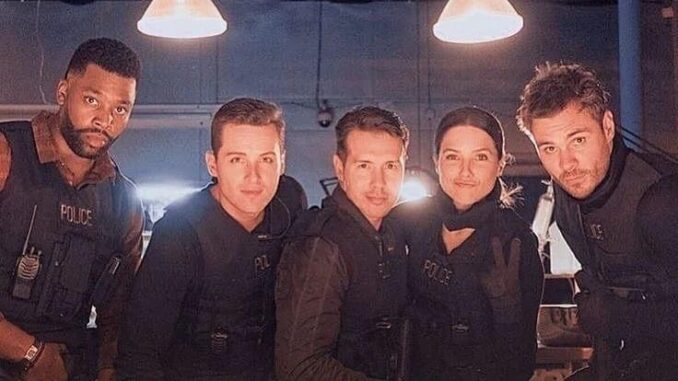
For years, Chicago P.D. fans have praised LaRoyce Hawkins’ portrayal of Kevin Atwater — a character who has consistently embodied courage, empathy, and moral clarity in a unit often defined by its moral gray zones. Season 13, Episode 5 finally gives Atwater the focus he deserves, serving not just as a thrilling case episode, but as a thoughtful acknowledgment of his ongoing conundrum: the struggle to uphold justice in a system that doesn’t always reward integrity.
Titled “The Line,” the episode follows Atwater as he becomes entangled in a case that tests his principles more than ever. When a shooting involving a young Black suspect draws citywide scrutiny, Atwater finds himself caught between his duty as a cop and his identity as a Black man in Chicago. It’s a dilemma that has defined his arc since the show’s early seasons — one that Chicago P.D. revisits here with emotional depth and narrative precision.
Hawkins delivers a stunning performance, balancing frustration, fear, and quiet determination. Viewers see Atwater confront the biases of both the streets and the system he works for, while also managing the expectations of Sergeant Voight (Jason Beghe), who urges him to “trust his instincts” — even when those instincts clash with the Intelligence Unit’s methods. The tension between personal truth and professional loyalty drives the episode’s emotional weight.
Director Bethany Rooney frames the story with gritty intimacy, capturing the duality of Atwater’s world. Scenes of him walking through his old neighborhood juxtapose sharply with the sterile intensity of the precinct — a visual metaphor for the line he’s forced to walk daily. The result is one of the most visually and emotionally cohesive episodes of the season.
Writers Gwen Sigan and Ike Smith deserve credit for treating Atwater’s journey with authenticity. Rather than reducing him to a symbol, they allow his humanity to shine through — the quiet moments of reflection, the suppressed anger, and the persistent hope that real change is possible. There’s a standout scene in which Atwater confronts a fellow officer about racial bias, not with fury but with measured honesty. It’s a moment that feels less like television drama and more like real-life reckoning.
Fans have long noted that Atwater’s heroism often goes underappreciated, overshadowed by the louder storylines of other team members. Episode 5 finally corrects that imbalance. It’s a reminder that Chicago P.D. is at its best when it leans into complex character studies rather than pure procedural beats.
As the episode closes, Atwater’s reflection — both literal and figurative — in a cracked rearview mirror encapsulates his ongoing struggle: trying to see clearly in a world that’s fractured by prejudice and power. He doesn’t have all the answers, but his willingness to keep asking the right questions makes him one of television’s most quietly powerful protagonists.
